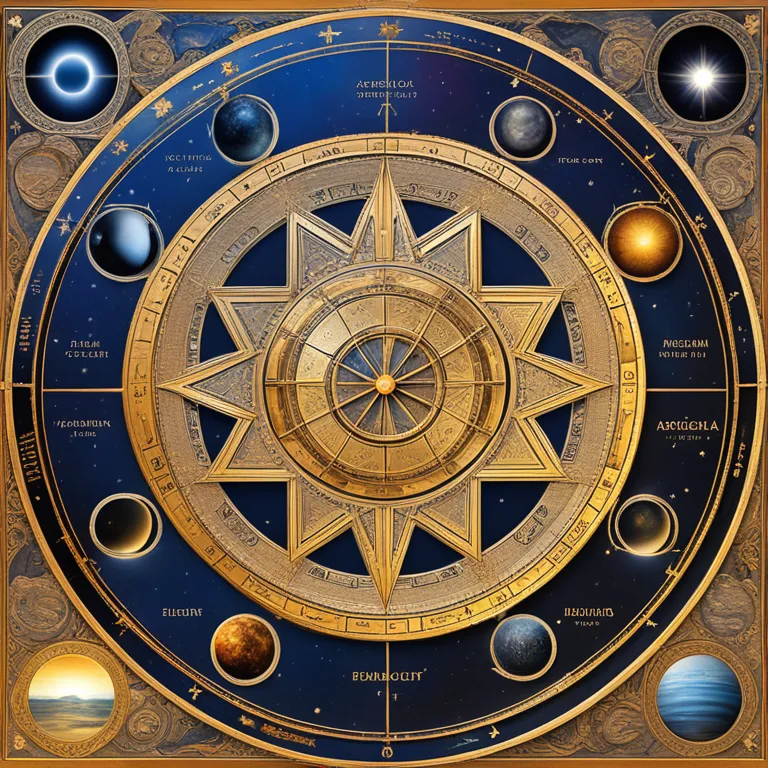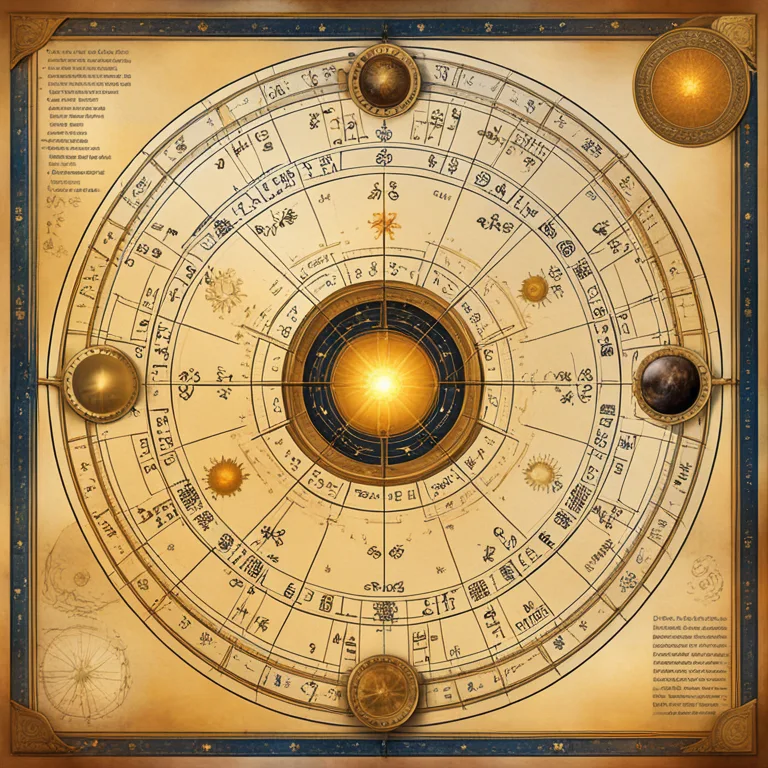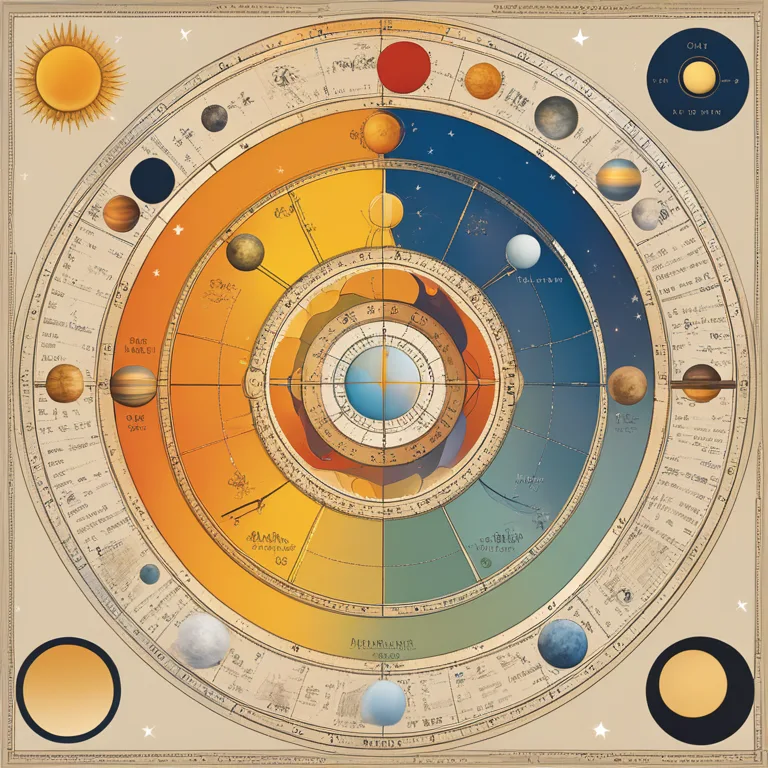
Demystifying Your Natal Chart
Gain insights into your unique astrological blueprint with our in-depth guide on natal chart interpretation.
article by Priya Deshmukh
Your natal chart, or birth chart, is a celestial snapshot of the sky at the moment you were born. It serves as an astrological map that outlines the positions of the planets and other celestial bodies, providing deep insights into your personality, life path, and potential. As the basis for most astrological readings, understanding your natal chart opens the door to a profound self-discovery journey.

The three primary ingredients of a natal chart are planets, signs, and houses. Each planet represents a specific type of energy, while the twelve zodiac signs reflect different ways this energy can manifest. The houses, each associated with different areas of life, show where these energies are most likely to influence you. Together, they form a complex interplay that shapes your individual character and experiences.

Planets are the dynamic actors in your natal chart story. The Sun and Moon, referred to as luminaries, play pivotal roles, signifying your core identity and emotional instinct, respectively. Mercury, Venus, and Mars are the personal planets that reveal much about your mind, love style, and assertiveness. Jupiter and Saturn are social planets that speak to growth and responsibility, while Uranus, Neptune, and Pluto are generational planets impacting broader life themes.

Zodiac signs, each with their own characteristics, influence how the planets' energies are expressed. Aries' pioneering spirit differs fundamentally from Libra's search for harmony. These qualities color planets' expressions, so Mars in Aries will act differently than Mars in Libra. Comprehending the nuances of each zodiac sign will enhance your reading of the natal chart.

The astrological houses segment the sky at your birth into twelve areas, each representing different life spheres like career, relationships, or finances. Identifying which planets and signs reside in your houses can pinpoint where you'll face challenges or thrive. Modern astrology typically adheres to the Placidus house system, but other systems like Whole Sign or Koch can also provide valuable perspectives.
Planets form angles known as aspects, which are crucial in natal chart interpretation. Major aspects like conjunctions, squares, and oppositions can either harmonize energies or generate tension. Understanding these relationships can provide context for life patterns and personal dynamics, indicating areas where you may encounter obstacles or support.
As astrology evolves with society and technology, updated databases and astronomical calculations for 2024 and beyond ensure increasingly accurate birth charts. Astrologers also consider newly discovered celestial bodies like asteroid Chiron and dwarf planet Eris, offering additional layers of meaning to contemporary chart readings. Embracing these advancements in astrology can deepen the relevance of your natal chart analysis.
Published: 12/22/2023
Modified: 12/22/2023
More predictions
Come back here soon to learn more about yourself and your future


Exploring Astrological Houses
Discover the basics of astrological houses and learn the methods for interpreting their significance in personal astrology.


Astrological Houses & Their Role In Modern Life
Delve into the significance of the 12 astrological houses and their influence on personal astrology.


Astrology: The Role of 12 Houses
Delve into the core of astrological houses and their influence on personality and life events in our insightful guide.